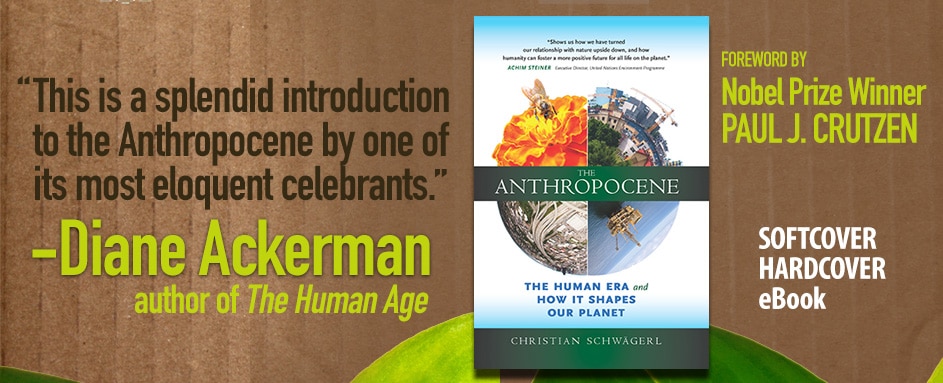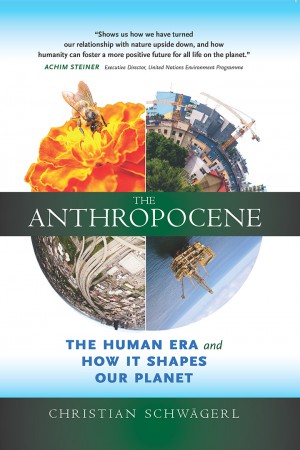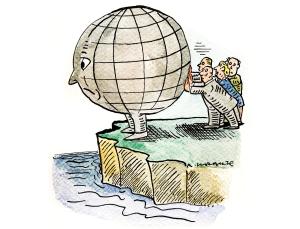
The Anthropocene: The Human Era and How It Shapes Our Planet
 We are pleased to announce our latest title, The Anthropocene: The Human Era and How It Shapes Our Planet by Christian Schwägerl.
We are pleased to announce our latest title, The Anthropocene: The Human Era and How It Shapes Our Planet by Christian Schwägerl.
Award-winning environmental journalist and author, Christian Schwägerl traveled the globe extensively, visiting rising megacities and interviewing key leaders in the fields of science, politics and culture. His work asks us to consider intriguing questions about our global impact as a species and our increasing responsibility as planetary stewards in creating a vibrant, geologically-sustainable future. (Christian Schwägerl was national correspondent for environmental, energy and science policy for the renowned German publication DER SPIEGEL from 2008 to 2012, for which he also covered international environmental topics from Africa, Asia and South America and the UN climate negotiations.)
Available November 2014 in the United States and February 2015 in the UK in Hardcover, Paperback and eBook, this thoroughly researched book is the result of years of work investigating the evolving debates on the Anthropocene.
[su_button url=”https://www.synergeticpress.com/product/the-anthropocene-a-new-planet-shaped-by-humans/” style=”flat” background=”#7fb981″ color=”#203e28″ size=”10″ radius=”10″ text_shadow=”0px 0px 0px #000000″]Buy This Book[/su_button]
““This is a splendid introduction to the Anthropocene by one of its most eloquent celebrants. I’m especially moved by Schwägerl’s conversations with Paul Crutzen and other scientists at the heart of the Anthropocene debates…. Scholars will appreciate his long tenure with the subject and the depth of his research.”
–Diane Ackerman, author of The Human Age.
TheAnthropoceneReviewSchwagerlDeFriesReviews
(Full Review PDF )




